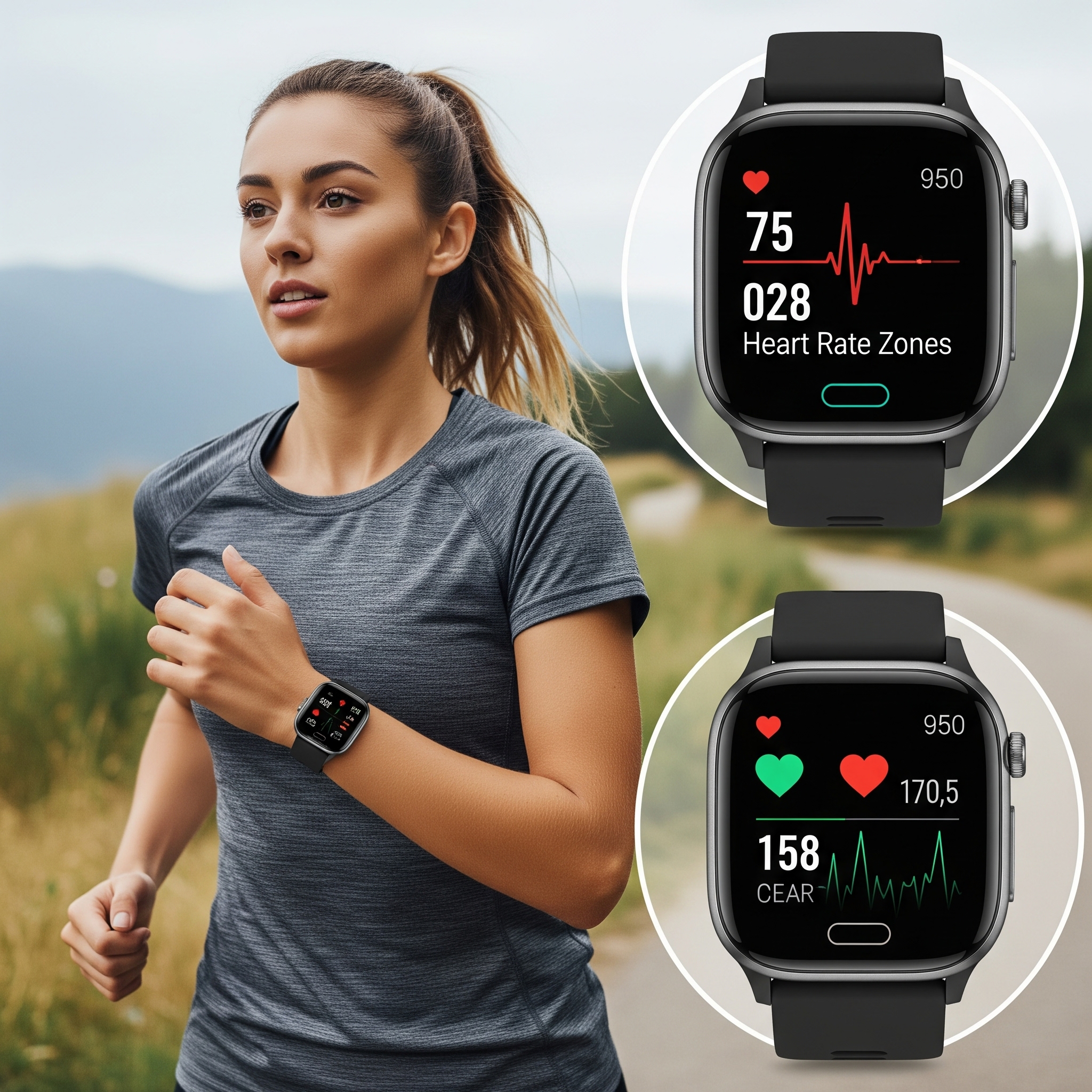Can a Smartwatch Really Spot a Heart Problem?
In recent years, wearable technology has made its way from fitness fanatics to GP surgeries. In the UK, more people than ever are using smartwatches like the Apple Watch Series 9, Fitbit Sense 2, or Samsung Galaxy Watch6 to track more than just steps.
These wearables now offer heart-focused features that promise to:
- Detect irregular heart rhythms
- Track heart rate trends
- Alert you to early warning signs of heart conditions
With heart disease remaining the UK’s leading cause of death, it’s no wonder many are asking: Can these watches really help – or are they just expensive gimmicks?



What Heart Health Features Do Wearables Offer?
Today’s leading smartwatches go far beyond basic heart rate tracking. Here’s what they offer — and how each feature could help your heart health:
♥ Continuous Heart Rate Monitoring
Your resting heart rate can say a lot about your cardiovascular fitness. A consistently high or low rate could signal:
- Dehydration
- Overtraining
- Underlying heart conditions
Smartwatches monitor this 24/7, helping you notice changes before symptoms arise.
♥ ECG Functionality (Electrocardiogram)
High-end models like the Apple Watch can record a medical-grade ECG in 30 seconds. This detects signs of atrial fibrillation (AFib) — a common heart rhythm issue that significantly raises your stroke risk.
In some cases, these devices have led users to get a life-saving diagnosis long before symptoms became severe.
♥ Irregular Rhythm Notifications
Even if you don’t take an ECG manually, your device may passively monitor your heart rhythm. If it detects signs of AFib or unusual beats, it will prompt you to check it with your GP.
♥ Heart Rate Variability (HRV)
HRV measures the variation between each heartbeat. While not diagnostic, low HRV can indicate high stress, over-fatigue, or poor recovery. Over time, it gives insight into how your nervous system — and heart — are coping.
♥ Blood Oxygen and Sleep Tracking
Though not specifically cardiac-focused, these tools help identify sleep disorders like sleep apnoea, which is linked to high blood pressure and heart failure if left untreated.
Real Benefits for Everyday Users
So how can wearables actually help you?
✅ Early Detection of Heart Issues
Many people in the UK have reported receiving early warnings of heart problems like AFib from their smartwatch — even before symptoms began. This gives them a head start in getting medical advice and starting treatment.
✅ Motivation for Healthier Habits
Seeing your heart rate spike after a stressful meeting — or drop after a brisk walk — creates instant feedback. This kind of insight helps users make more mindful choices around:
- Diet
- Exercise
- Sleep
- Stress management
✅ Support in Cardiac Recovery
If you’ve had a heart attack or heart surgery, your wearable can help monitor your recovery and reduce the anxiety of not knowing how your heart is doing day to day.
How Accurate Are Smartwatches for Heart Monitoring?
Smartwatches are surprisingly accurate — within a few beats per minute of medical-grade equipment at rest. But they aren’t perfect. It’s vital to remember: these devices do not detect heart attacks or blocked arteries. If you have chest pain, shortness of breath, or palpitations, call 111 or 999 — not your smartwatch.
| Feature | Accuracy | Notes |
|---|---|---|
| Resting Heart Rate | High | When resting or sitting |
| Heart Rate During Exercise | Variable | Movement or sweat may interfere |
| ECG for AFib | Reliable | Not a full 12-lead ECG but very useful |
| Blood Oxygen | Moderate | Best used as a trend over time |
| HRV | Variable | Interpret with caution — not a diagnostic tool |
Are Wearables Worth It in the UK?
With some watches costing £250–£500, the price tag can be steep. But for the right person, the benefits can far outweigh the cost.
💡 You might benefit if:
- You’re over 50 and have a family history of heart disease
- You’ve been diagnosed with AFib, hypertension, or high cholesterol
- You’re recovering from a cardiac event and want to monitor progress
- You’re trying to adopt a healthier lifestyle and want real feedback
If you already wear a Fitbit or entry-level tracker, upgrading to one with ECG and rhythm alerts could be a smart next step.
For younger, healthy users with no risk factors, the value may be more about wellness motivation than medical insight.
When to Speak to Your GP About Your Watch Data
Wearables can be a great tool — but only your GP or cardiologist can make a diagnosis.
Speak to your doctor if:
- Your smartwatch notifies you of AFib or irregular rhythm
- Your heart rate is consistently above 100 bpm or below 50 bpm at rest
- You feel dizzy, breathless, or have chest pain
- You’re confused about your data and want help interpreting it
Many GPs are open to reviewing your wearable data as a supplement to traditional tests. Just don’t rely on it as your only source of medical information.
Final Verdict: Are Heart Health Wearables Worth It?
Yes — for the right people.
Smartwatches and health wearables offer convenient, real-time insight into your cardiovascular wellbeing. They won’t replace your GP or cardiologist, but they can:
- Motivate you to stay healthy
- Catch early warning signs
- Support long-term recovery
In a world where every minute matters in heart health, even a gentle nudge from your wrist could one day save your life.
